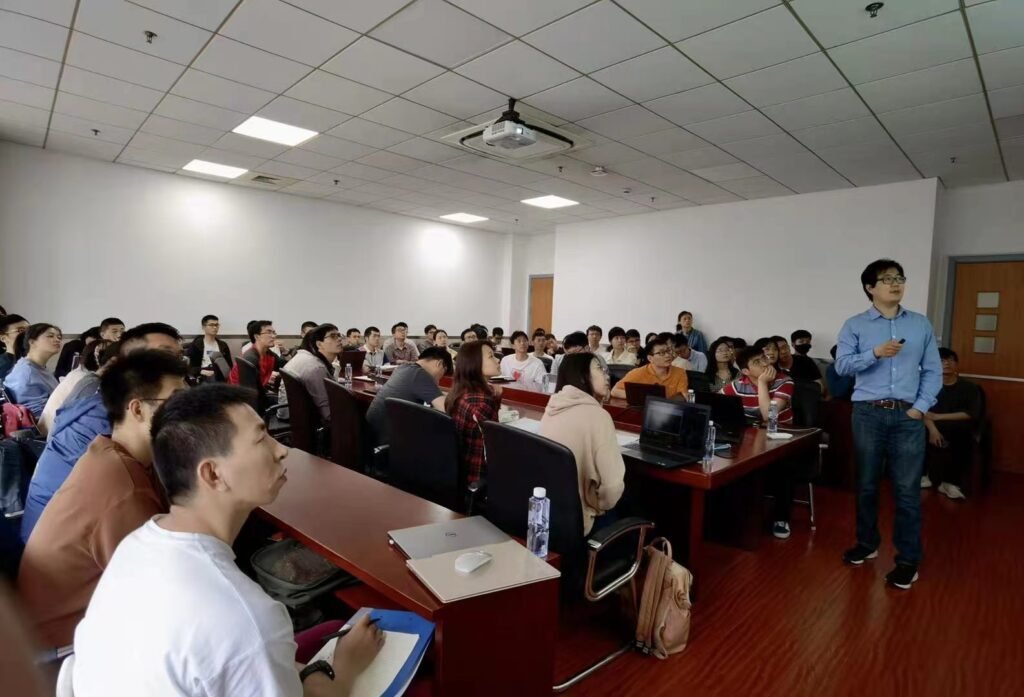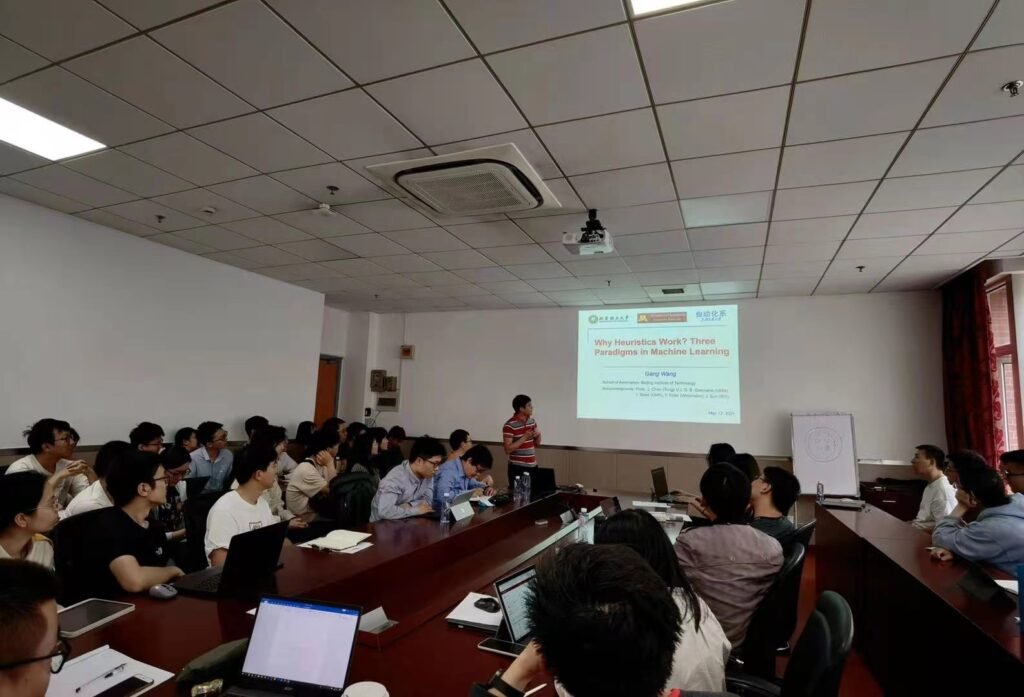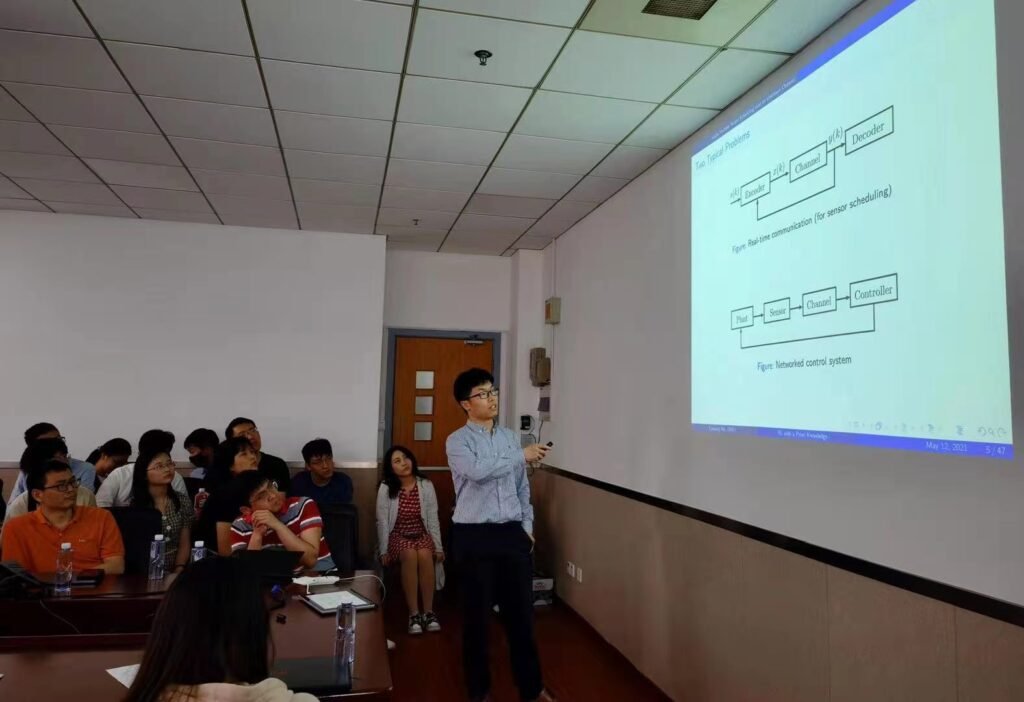On the afternoon of May 12, 2021, at the invitation of Professor Jianping He of the Automation Department, Professor Yilin Mo from Tsinghua University, Professor Gang Wang from Beijing Institute of Technology, and Professor Xiaoqiang Ren from Shanghai University gave series of lectures to the teachers and students of our department. The impressive reports attracted many undergraduate and graduate students to participate.
Professor Yilin Mo, associate professor in the automation department of Tsinghua University, gave us an excellent lecture entitled “A Distributed Estimator Design via Decomposing Steady-State Kalman Filter.” The report focused on the distributed estimation that is one of the fundamental tasks of sensor networks. In this talk, Prof. Mo proposes a framework for distributed estimator on a Linear Time-Invariant (LTI) Gaussian system. By a lossless decomposition of optimal steady-state Kalman filter, Prof. Mo shows that the problem of distributed estimation can be reformulated as synchronization of homogeneous linear systems. After ingenious proof, he further illustrates that any linear system synchronization algorithm that is consistent and converges exponentially can be adapted to solve the distributed estimation problem.

Professor Gang Wang, professor in the automation department of Beijing Institute of Technology, reported about “Why Heuristics Work Three Paradigms in Machine Learning.” In this report, Prof. Wang discusses three concrete problems to provide us a deeper understanding of why and how heuristics work well. The first is a century-old problem known as phase retrieval. To help us understand, Prof. Wang takes X-ray crystallography as an example, where there is the need to recover the image information using magnitude-only measurements. The second is the problem of training a two-layer nonlinear neural network over separable data, and the third is about temporal-difference learning. In these three problems, Prof.Wang describes the solutions and present some theory of explanation.

Professor Xiaoqiang Ren from Shanghai University then ends the series with a wonderful report “Reinforcement Learning with a Prior Knowledge.” His presentation focuses on how to integrate prior knowledge into reinforcement learning design and training. To give the audience a clear understanding of the practices, Prof. Ren introduces some recent work of his team, including the scheduling design of remote state estimator for unknown communication channel data, overtaking decision in the two-way lane, and grasping in the irregular environment.

In the end, Prof. He summed up the report and encouraged everyone to consolidate their basic skills and actively participate in scientific research. The report was successfully concluded in a warm atmosphere.